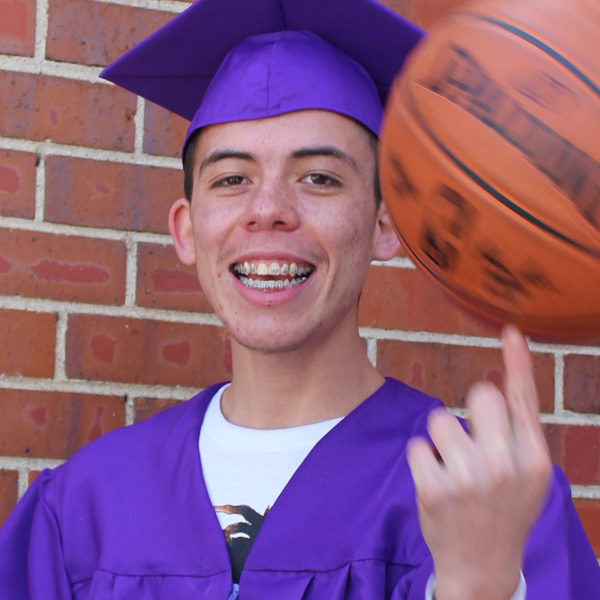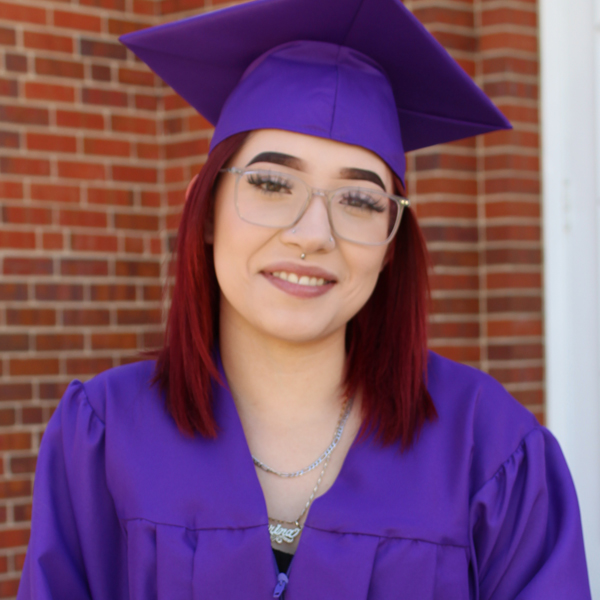Who We Are
The Denver Street School is a faith-based, private, secondary school serving the Metro Denver, inner-city community. Located in Lakewood, we accept students who have struggled in, dropped out of, or been expelled from other schools and need a more personalized approach to their education. The school is completely privately funded and accredited by Cognia.
DSS Difference
The Denver Street School is a beacon of hope for struggling students who’ve been unable to find their place in traditional high schools. More than just an educational institution, it’s a place where they can find encouragement and motivation to build a better future for themselves.
- We offer a second chance at a high school diploma.
- We help remove barriers so students can pursue their dreams and goals.
- We provide personalized education in a small school setting.
- We create a “family” environment that fosters relationships between students, faculty, and staff.
- We emphasize the importance of faith as a source of hope and support.
- We uncover potential by providing students with tools they need to succeed.
Mission and Purpose
The purpose of DSS is bringing hope, a second chance, and the love of Christ to Denver’s at-risk youth through quality education in a safe environment and a supportive network of loving, caring adults.
We believe that every student—regardless of their past choices or present environment—deserves the opportunity for a high-quality education and the hope of a promising future.
Our 4 Core Pillars
Sense of Family and Love of Christ
A relationship with Jesus drives our narrative. This is foundational for our program. It’s why we create a safe space for building trust. It’s why we meet the needs of our students — academically, emotionally, and sometimes physically by providing essential needs, paying rent, and attending court dates.
Quality Education
We are a fully accredited high school program, opening doors for college opportunities. We embrace a relevant curriculum, emphasizing life skills, college readiness, and experiential learning by fostering a culture of revision and mastery. The average GPA improvement from intake to end of the first year is 1.5 grade points.
Trauma Awareness
Before we can help, we have to understand. DSS intentionally creates, fosters, and maintains a culture of active awareness for the unique struggles and challenges facing our students, and we provide an environment for their success.
Hope and Vision for the Future
We create excitement for their future by helping them catch a vision for their life. We put real-world tools in their hands, like workforce readiness, meaningful internships, and entrepreneurship-focused classes to prepare them for 21st century success. Based on eligible seniors, we have a 95% graduation rate.
Statement of Faith
We believe all have fallen short of the glory of God and are broken people. It’s because of His great love that He gave His One and Only Son, who led a sinless life, to pay the price for our sins on the cross. We believe Jesus conquered death and was resurrected three days later. And we believe this act of love made a way for us to have a relationship with the Father. We also know that according to scripture, those who believe in Him shall not perish but have eternal life. This is the Gospel truth.
It’s in response to God’s unshakable love that our highest desire is to honor Him in all our decisions and actions. We purpose to follow Matthew 22:37-39 which says, “‘Love the Lord your God with all your heart and with all your soul and with all your mind.’ This is the first and greatest commandment. And the second is like it: ‘Love your neighbor as yourself.’
Individualized Education
We believe every student should have an education plan tailored to their unique needs and abilities. This plan involves filling educational gaps, providing additional support, and helping students identify and overcome obstacles that stand in the way of a diploma.
For each student, we assess where they are when they come to DSS and continue to modify along their educational journey. We provide individualized learning pathways based on their strengths, challenges, interests, and goals. With this approach, teachers can create plans to help students succeed in the classroom and beyond. We can ensure they will receive the specific attention they need to reach their highest potential.
Student Body Profile
The students who walk the hallways of DSS are amazing! Why? They not only choose to navigate the complexities of life but also push through the struggles that often keep them stuck. When asked, most would say it’s the school culture coupled with caring adults that gives them the courage and confidence they need to achieve success!
The Denver Street School’s student body is composed of a diverse population with varying backgrounds, experiences, and needs. Many students have faced (1) abusive situations, (2) education setbacks, (3) mental health issues, (4) drug use, (5) financial challenges, and (6) complex trauma. We meet each student right where they are and call them higher in the right ways and at the right times.
All are welcome here! Our goal is to create an environment that is supportive and inclusive for all our students so they can reach their full potential despite the challenges they may face.
History and Governance
In 1979, Tom Tillapaugh received a vision from the Lord to start the Denver Street School and in 1985 moved his family from Oklahoma to Denver. He began teaching classes in his dining room with five students, and quickly adjusted techniques and procedures from the traditional classroom to meet the special needs of his unique student body. These students were dealing with issues including poverty, addiction, violence, illiteracy, anger, and an utter lack of hope for a meaningful future. A high school diploma and future success were impossible without a holistic approach that included not only academic rigor, but also career, life skills, social/emotional development, and a personal relationship with Jesus. To this end, the school began.
We are governed by a Board of Directors who have a heart for seeing the mission of the Denver Street School continue with purpose and passion. And at the core, we continue to be guided by the Lord to carry out His vision for Denver’s struggling students.






